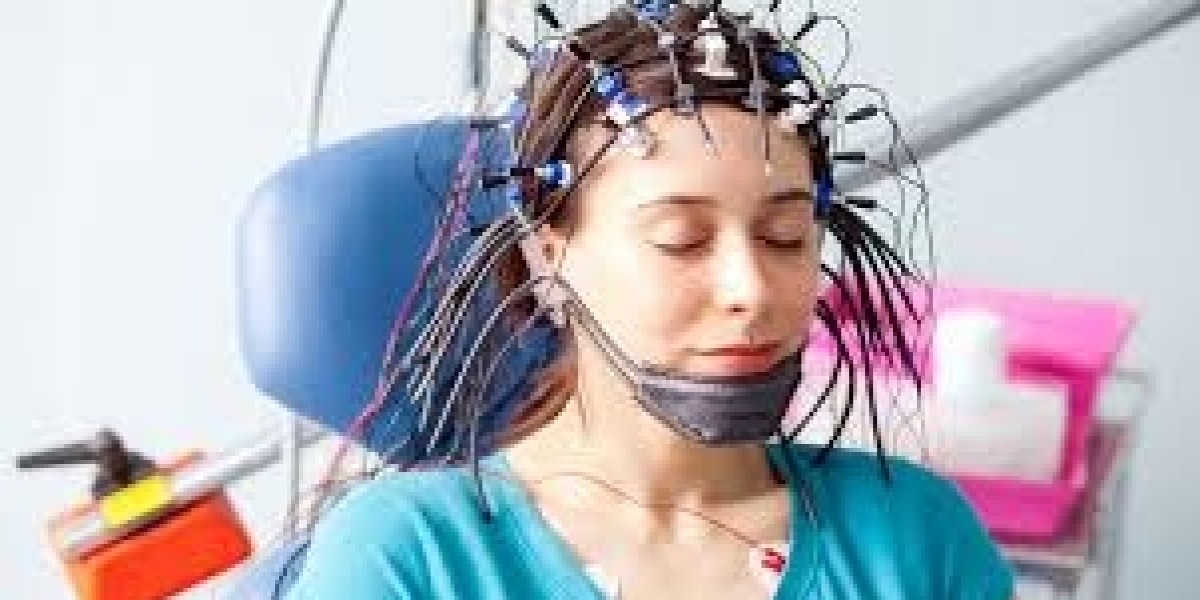EEG Test Near Me – A Complete Guide to Brain Activity Monitoring
If you are experiencing symptoms like seizures, memory problems, or unusual brain activity, your doctor may recommend an EEG scan. Finding the right EEG test near me is essential for accurate diagnosis and effective treatment. This guide will help you understand everything about EEG tests, including the procedure, benefits, and how to prepare for one.
What is an EEG Test?
An Electroencephalogram (EEG) is a non-invasive test used to measure electrical activity in the brain. It records brain wave patterns to detect any abnormalities that might be linked to conditions like epilepsy, sleep disorders, or head injuries.
How Does an EEG Work?
Small electrodes are attached to your scalp.
These electrodes detect electrical signals produced by brain cells.
The signals are recorded and analyzed by a neurologist to identify any irregularities.
Why is an EEG Test Performed?
EEG tests are commonly used for diagnosing:
Epilepsy – To identify abnormal brain activity and seizure patterns.
Sleep Disorders – Conditions like insomnia, sleep apnea, and narcolepsy.
Brain Tumors – Detects unusual electrical activity linked to tumors.
Head Injuries – Assesses damage after trauma or accidents.
Dementia & Memory Issues – Helps in diagnosing Alzheimer's or other cognitive impairments.
Types of EEG Tests
1. Routine EEG
This is the most common type, lasting 20–40 minutes.
2. Sleep EEG
Conducted while the patient is asleep to detect sleep-related disorders.
3. Ambulatory EEG
A portable EEG device records brain activity over 24–72 hours.
4. Video EEG
Simultaneously records brain activity and video footage to correlate seizures with physical symptoms.
How to Prepare for an EEG Test?
Wash your hair the night before; avoid hair gels or sprays.
Avoid caffeine for 8–12 hours before the test.
Take your prescribed medication unless instructed otherwise.
Sleep as instructed if undergoing a sleep EEG.
Stay relaxed during the test to avoid movement artifacts.
What to Expect During an EEG Test?
Step 1: Preparation
A technician places electrodes on your scalp using a special adhesive.
Step 2: Recording Brain Waves
You may be asked to perform simple tasks like opening/closing your eyes, breathing deeply, or looking at flashing lights.
Step 3: Completing the Test
The electrodes are removed, and the neurologist analyzes the recorded data.
Is the EEG Test Painful?
No, an EEG is a painless and non-invasive procedure. It does not involve needles or electrical shocks.
How Long Does an EEG Take?
A routine EEG typically lasts between 30 minutes and 1 hour. However, extended tests may take several hours or even days.
Understanding EEG Test Results
Normal Results
Consistent brain wave patterns with no abnormalities.
Abnormal Results
Irregular patterns indicating epilepsy, tumors, brain injuries, or neurological disorders.
Benefits of EEG Tests
Early Detection of Neurological Disorders
Non-Invasive & Painless Procedure
Accurate Diagnosis & Treatment Planning
Monitors Treatment Effectiveness for epilepsy and brain conditions
Conclusion
An EEG test is an essential tool for diagnosing and managing various brain-related conditions. If you have symptoms that require neurological assessment, don't hesitate to find an EEG test near me and get a professional evaluation.
Frequently Asked Questions (FAQs)
1. What is the cost of an EEG test?
The cost varies depending on location and type of EEG. Routine EEGs are generally affordable, but extended tests may cost more.
2. Can I eat before an EEG test?
Yes, you can eat, but avoid caffeine as it may affect brain activity readings.
3. Is an EEG better than an MRI?
Both serve different purposes. EEG measures brain activity, while MRI provides detailed images of brain structures.
4. Can EEG detect anxiety?
EEG can show brain wave abnormalities linked to stress and anxiety, but it is not a primary diagnostic tool for anxiety disorders.
5. What conditions can an EEG diagnose?
EEG helps detect epilepsy, sleep disorders, head injuries, brain tumors, and neurodegenerative conditions.
6. Are there any risks associated with an EEG?
EEG is completely safe and does not pose any health risks.
7. How soon will I get my EEG test results?
Results are usually available within a few days, depending on the diagnostic center.
8. Do I need a doctor’s prescription for an EEG test?
In most cases, a neurologist or physician will recommend an EEG based on symptoms.
9. Can children undergo an EEG test?
Yes, EEG is safe for children and is commonly used for diagnosing epilepsy and developmental disorders.
10. Will I need someone to accompany me for the test?
For routine EEGs, you can go alone. However, for sedation or sleep EEGs, having a companion is recommended.





